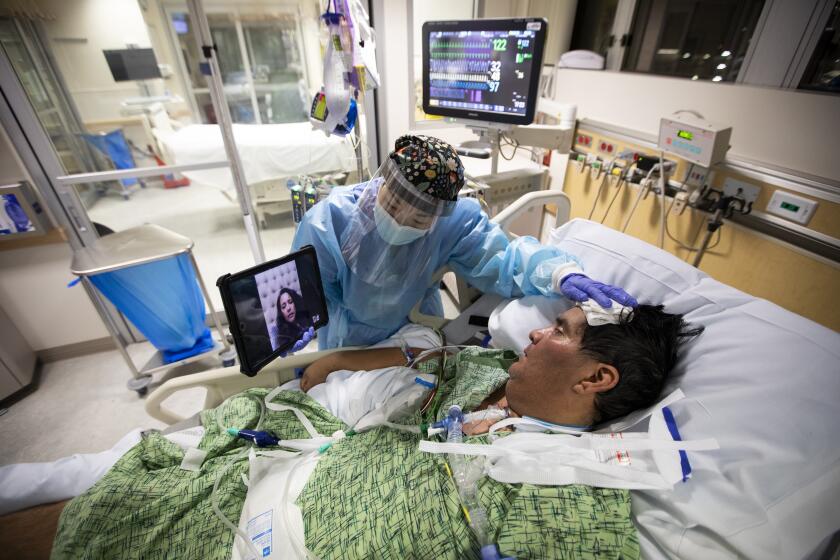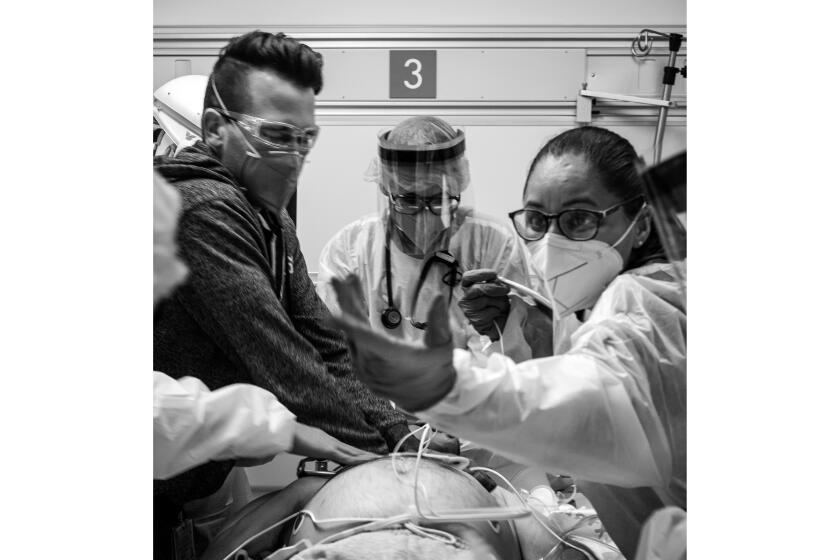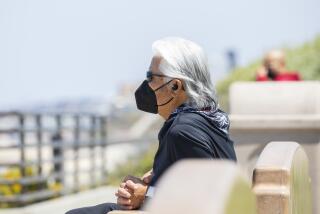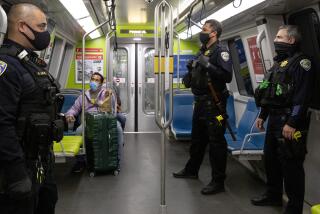Doctors’ see-through surgical masks help put patients at ease
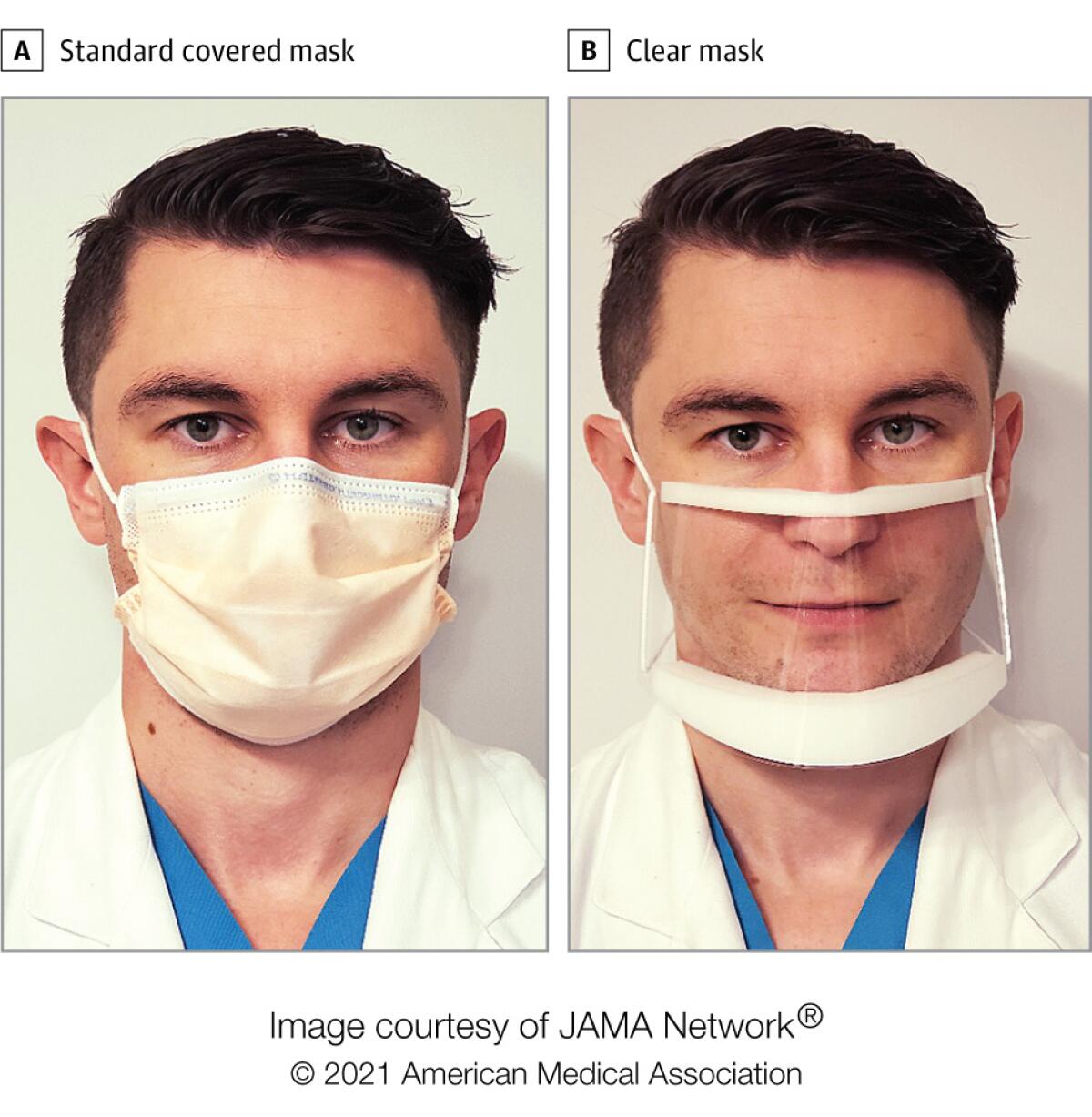
Scientists who outfitted surgeons with clear masks found that patients gave them higher marks for empathy and explaining things clearly compared with doctors who wore typical surgical masks.
The findings, published Thursday in the journal JAMA Surgery, highlight an unfortunate side effect of universal mask wearing in medicine — and one possible way to help overcome it.
Dr. Muneera Kapadia, a colorectal surgeon at the University of North Carolina School of Medicine in Chapel Hill, said the study was inspired by a comment made by one of her patients at the beginning of the summer, when the COVID-19 pandemic had already made masks standard attire in hospital settings.
Doc, you know, you took out half my colon, and I don’t even know what you look like, Kapadia recalled the patient telling her.
At that point, Kapadia and her patient had spent quite a bit of time together. She had met him in the clinic, she had operated on him, and she had seen him every day since. But this comment, just as he was leaving, stuck with her.
“I think masks are having a bigger impact on our relationships that we — as physicians and providers and surgeons specifically — than we sort of realize,” said Kapadia, the study’s senior author.
Masks have proven their worth countless times over in preventing the spread of the coronavirus that causes COVID-19. A face mask prevents the wearer from spreading virus-laden droplets if they’re infected, and it reduces the risk of breathing in virus-laden droplets from others.
That said, they’ve come with a noticeable drawback: We can’t see people’s faces — and thus, their expressions — from the nose down. And we can’t always hear each other quite as easily as we used to.
Kapadia wondered: How much of a difference does it make to patients, whether they can see their surgeon’s face or not?
As hospitals cope with coronavirus cases, deaf and hard of hearing patients face greater barriers accessing accommodations that help them understand what doctors are saying.
Study lead author Dr. Ian Kratzke, a surgery resident at UNC Chapel Hill whose website lists a hidden talent for online shopping, came across some unusual face masks made with transparent plastic. This allows others to see the wearer’s mouth — most of their face, in fact. The masks have a rating that is equivalent to traditional surgical masks and were cleared for use by the Food and Drug Administration in April.
To test the masks, Kapadia, Kratzke and their colleagues set up an experiment. They recruited 15 surgeons and randomly assigned them to wear either a clear mask or a standard surgical mask when seeing patients they’d never met before. (All patients wore their own masks, and none of them were transparent.)
After the clinic visit was over, a researcher interviewed the patients about their experience. In all, the study team spoke with 100 patients who’d seen surgeons wearing clear masks and 100 patients who’d seen surgeons wearing traditional masks. Patients deemed high risk, for whom N95 mask use by caregivers was recommended, were excluded from the study.
Patients in both groups ranked their surgeon’s ability to listen, answer questions, show respect and spend time with them at approximately the same high level — at least 95% of 100 patients ranked surgeons positively in each category.
The advantages of the clear masks became apparent when patients evaluated the clarity of the surgeons’ explanations (95% for the clear masks vs. 78% for the traditional masks), their knowledge of the patient’s history (100% vs. 78%), the surgeon’s empathy (99% vs. 85%), their level of trust in the surgeon’s decisions (94% vs. 72%), and their overall impression of the masks (100% vs. 72%).
A widespread study of nearly 200,000 U.S. adults hospitalized with COVID-19 found that the oldest patients were 19 times more likely to die than the youngest patients.
Ultimately, more patients seemed to feel they understood their surgeon better — and that their surgeon empathized with them — when those surgeons wore clear masks instead of traditional ones that obscured their faces.
“We probably don’t recognize as well as we should that people are sometimes hard of hearing, so they probably read our lips more than we realized,” Kapadia said. That’s especially important given that masks can muffle sound. Beyond that, “if you look at people’s facial cues when they’re speaking, to tell us if they’re serious, if they’re happy if they’re sad, those sorts of things and I think we miss those things when half of the face is covered.”
In an editorial accompanying the paper, Dr. Margaret Schwarze and Dr. Elle Kalbfell of the University of Wisconsin Madison pointed out that, while wearing masks outside the operating room has become normal for surgeons, the study shows it may not be so easy for patients to adjust.
“Trust is the cornerstone of surgical care,” they wrote. “Without it, patients would not let us operate on them or trust our judgment to forgo surgery. And how we speak may be more important than what we say. As surgeons, we do many bold things because they improve patient care, and wearing a clear mask with new patients should be one of them.”
While clear masks were a rousing success with patients, the surgeons who wore them had a more mixed response. Eight of 15 surgeons, or 53%, said they were unlikely to choose the clear mask over their standard covered mask. Some complained about the fit, others about the fogging. Some wondered whether the masks — which are rated at ASTM Level 3, equivalent to standard surgical masks — really were as effective as the ones they were used to.
Four surgeons, however did mention that they’d be more likely to wear a clear mask if patients showed that they preferred it.
For her part, Kapadia said the study was not so much a pitch for specific clear masks as it was a window into a problem with pandemic-era patient care.
“I think we’ve identified an issue; I don’t know that we’ve completely identified the solution,” she said. “In my mind, potentially wearing a clear mask may help mitigate some of the issues we discovered, but I think really, this is about realizing that when we wear a mask, which is important from a safety standpoint, it does affect our communication with patients.”
When the COVID-19 pandemic began last spring, Dr. Scott Kobner knew history was unfolding. Soon he began showing up at the hospital on his days off with his Leica M6 and M10 cameras.
This means that healthcare providers probably need to go to greater lengths to ensure that patients understand what they’re being told, and perhaps to be a little more deliberate in verbally demonstrating empathy. Efforts like these could help strengthen the doctor-patient relationship in these unprecedented times.
“This is a fascinating study,” said Dr. Monica Gandhi, an infectious disease specialist at UC San Francisco who was not involved in the study.
“It was a difficult year in so many ways but one is the empathy aspect,” Gandhi said. “Part of being a doctor is just sitting with the patient face-to-face and talking to them, and the mask hinders that, there’s just no question.”
Gandhi added that last week, she took off her mask in order to comfort a patient who was deeply depressed. (Both she and her patient had been vaccinated.)
“It was imperative for me to connect to him as a human being,” she said. “So I think this [study] is amazing and completely makes sense to me.”
